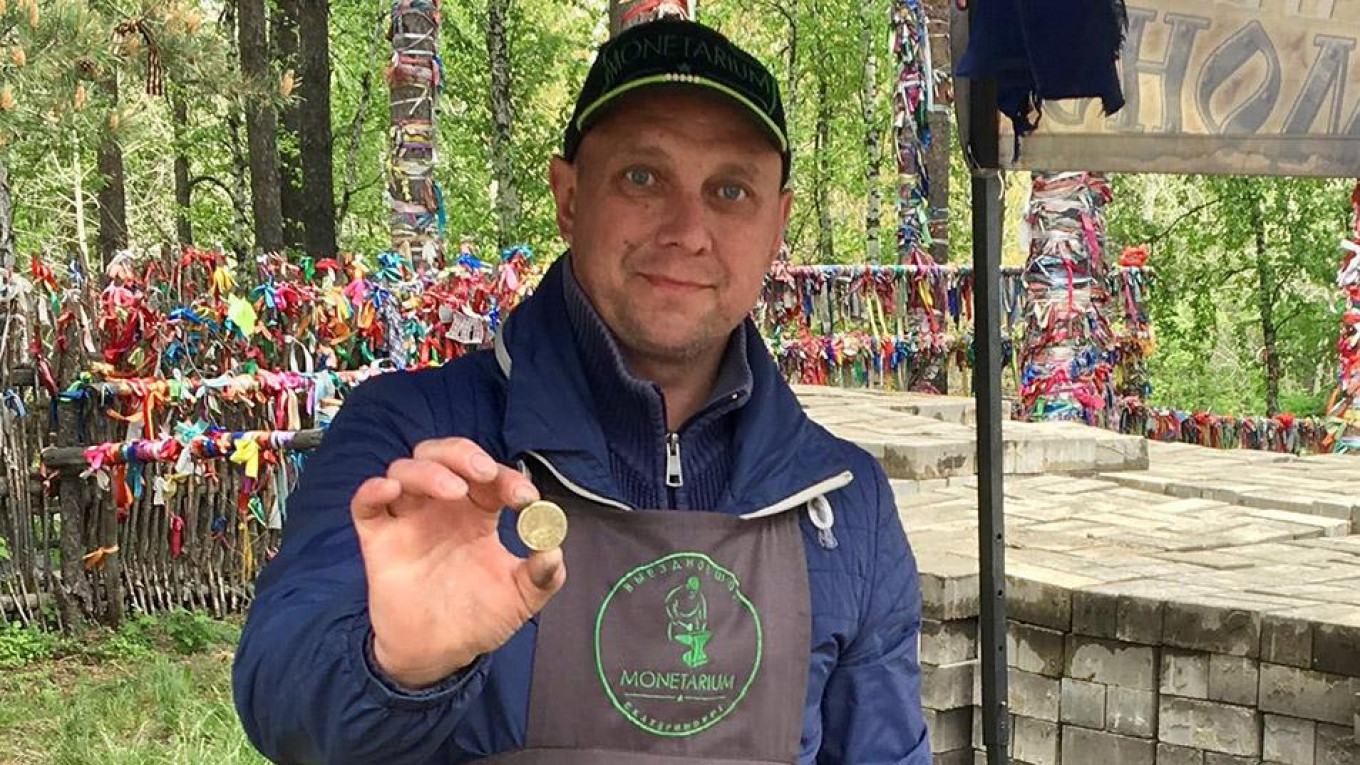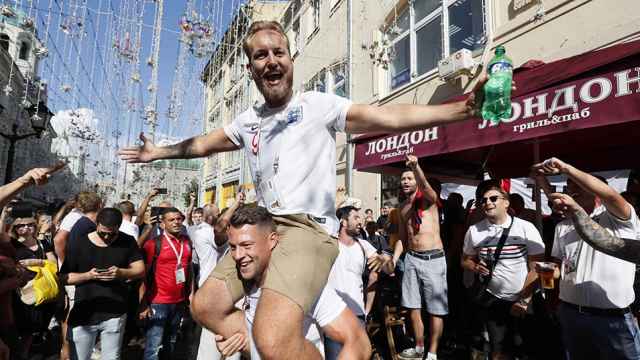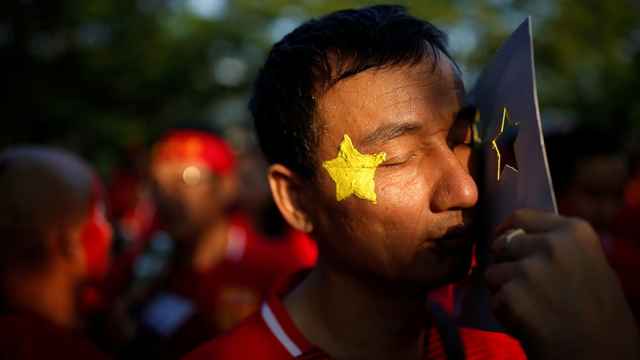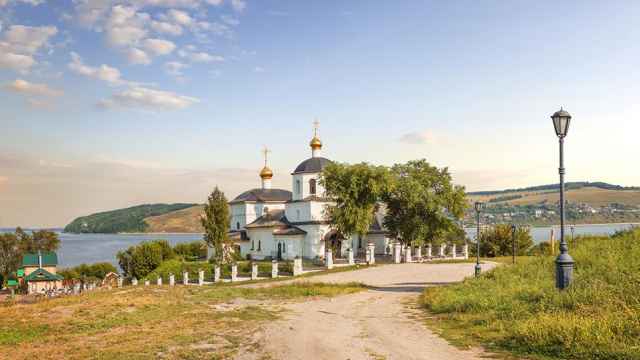Sergei Brik has spent seven years bashing out souvenir coins for tourists at the frontier in the heart of Russia where Europe and Asia meet.
With four World Cup games taking place on his doorstep in Yekaterinburg, 1,750 km (1,100 km) east of Moscow, he is hoping for a football-fueled boost to business - but only up to a point.
When Brik investigated the cost of getting the rights from tournament organizers to use World Cup-related designs on his coins, it turned out to be about 50,000 rubles ($790), he said - a tall order for the tiny business that typically earns him about 7,000 rubles a week.
"We wanted to use FIFA symbols of the tournament, but everything has its complications," said the 46-year-old, who raises a long-handled hammer above his head and crashes it down with gusto to imprint the designs that tourists choose.
"Everything has a price, including symbols, so we reckoned it wasn't profitable. It's a lot of money," he added. "The tournament will finish, and interest will simply drop off."
Business has already picked up at the Europe-Asia border beside a busy highway west of Yekaterinburg. The meeting of the two continents is marked by a metal obelisk with the intertwined letters A and E, and a line where visitors can stand with one foot in each landmass.
"There are quite a lot of tourists here every day. But during the World Cup about two or 2-1/2 times more," Brik said.
He has added just one World Cup-related coin - featuring the Yekaterinburg stadium - to a range that includes the border monument, the Russian double-headed eagle, the founders of the city and several dozen others.
Natalya Repkova, who sells souvenirs in a small shop nearby, agrees that footfall has risen by several times, but says the effect on the bottom line has not been so spectacular.
"It has an effect on profit, but you know not all foreign tourists spend money. Some just walk about and look and take pictures, and some of them buy something. Maybe our profit has gone up, but not very much."
She has widened her selection of beads, bracelets, lacquer boxes and other souvenirs, and lined up an array of badges on the counter featuring footballs and boots.
With the first game between Egypt and Uruguay out of the way, the vendors can now look forward to an influx of supporters from France, Peru, Japan, Senegal, Mexico and Sweden for the remaining three matches in Yekaterinburg.
That is also a welcome prospect for electrical engineer Eldar Magalimov, who has taken his entire annual holiday allowance of 25 days and with his fiancee Svetlana has started a pop-up business aimed at fans on the streets of the city center.
"We wanted to surprise fans with something they don't have in their country and leave them with a memory of Russia - a Russian fur hat with their national flag," he explained as the pair hawked their headgear at a price of 1,500 rubles or $25.
They came up with the design themselves and ordered the hats from a local factory - and chilly, overcast weather is working in their favor.
"It's cold and rainy in Yekaterinburg at the moment, so I think this is the most appropriate form of clothing," Magalimov said.
A Message from The Moscow Times:
Dear readers,
We are facing unprecedented challenges. Russia's Prosecutor General's Office has designated The Moscow Times as an "undesirable" organization, criminalizing our work and putting our staff at risk of prosecution. This follows our earlier unjust labeling as a "foreign agent."
These actions are direct attempts to silence independent journalism in Russia. The authorities claim our work "discredits the decisions of the Russian leadership." We see things differently: we strive to provide accurate, unbiased reporting on Russia.
We, the journalists of The Moscow Times, refuse to be silenced. But to continue our work, we need your help.
Your support, no matter how small, makes a world of difference. If you can, please support us monthly starting from just $2. It's quick to set up, and every contribution makes a significant impact.
By supporting The Moscow Times, you're defending open, independent journalism in the face of repression. Thank you for standing with us.
Remind me later.






